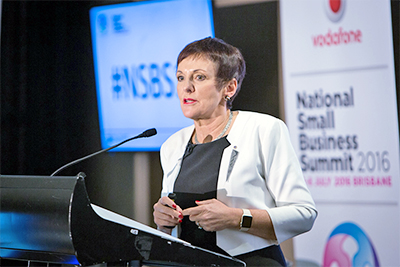Ombudsman's report finds Small Business Fair Dismissal Code does not work
THE Small Business Fair Dismissal Code "in its current form, is not working in the way it was originally intended,” according to Australian Small Business and Family Enterprise Ombudsman, Kate Carnell.
Ms Carnell, has handed down a comprehensive review of the Small Business Fair Dismissal Code, recommending a suite of changes to help small business employers meet their obligations.
"It is ambiguous and open to interpretation, particularly by lawyers, which means too many small businesses are being pulled into unfair dismissal hearings which are costly and impact productivity," Ms Carnell said. 
“The vast majority of small business operators are hard-working Australians with good intentions.
“The recommendations in this review aim to give small business operators clear guidelines to deliver certainty around complying with the code.
“Importantly – the recommended amendments and checklists are designed to guide a small business employer through a fair dismissal process, not to make the dismissal process easier," Ms Carnell said.
“We know that small businesses do not make the decision to end a worker’s employment lightly. Research by the Fair Work Commission found one of the key challenges for small business operators was attracting and retaining good staff and that good employees were highly valued.
“Small businesses can’t afford to engage in costly and stressful legal action. They don’t have the support of a HR department when faced with the difficult decision to end a staff member’s employment," Ms Carnell said.
“That’s why it’s critical for the code to drive fairness, and set out clear expectations for small business employers.
“According to figures released by the Fair Work Commission, during the first three months of this year it received 3,583 unfair dismissal applications.
“Most were settled during mediation, but for the 172 cases that were presented to the Commission, 111 (65%) were dismissed because they were without merit or deemed legally invalid, meaning they should not have gone to the Commission in the first place," she said.
“By taking the ambiguous language out of the Code such as ‘reasonable grounds,’ ‘valid reason,’ and ‘reasonable chance’ and improving the checklist questions, small businesses will be in a much better position to comply.
“We want the Code to work, so that small businesses are doing the right thing and there’s less need to engage lawyers,” Ms Carnell said.
Ms Carnell said the review contains recommendations in three key areas:
- Amendments to ensure the code meets its intended functions and objectives and provides certainty on what is required of small business employers to ensure a dismissal is fair.
- Improving small business education and awareness in relation to the Code and checklists to help them meet their obligations.
- Clarifying the unfair dismissal claims process for small business employers and employees.
The Small Business Fair Dismissal Code was formed as part of a report 'Forward with Fairness: Labor’s plan for fairer and more productive Australian workplaces' in recognition that small business owners do not have the time or expertise to navigate the complex unfair dismissal system. When the code came into effect in 2009 under the Labor Government, the interpretation of the code was challenged in the courts and, on occasion, by members of the Fair Work Commission.
Ms Carnell said that created uncertainty for small business employers, as following the code was no longer a reliable way of ensuring a dismissal was going to be deemed fair.
In April 2018, the Australian Small Business and Family Enterprise Ombudsman released its report 'Workplace Relations- Simplification for Small Business'. That report recommended ASBFEO lead a review of the Small Business Fair Dismissal Code and checklist.
ends

 How to resolve AdBlock issue?
How to resolve AdBlock issue? 


